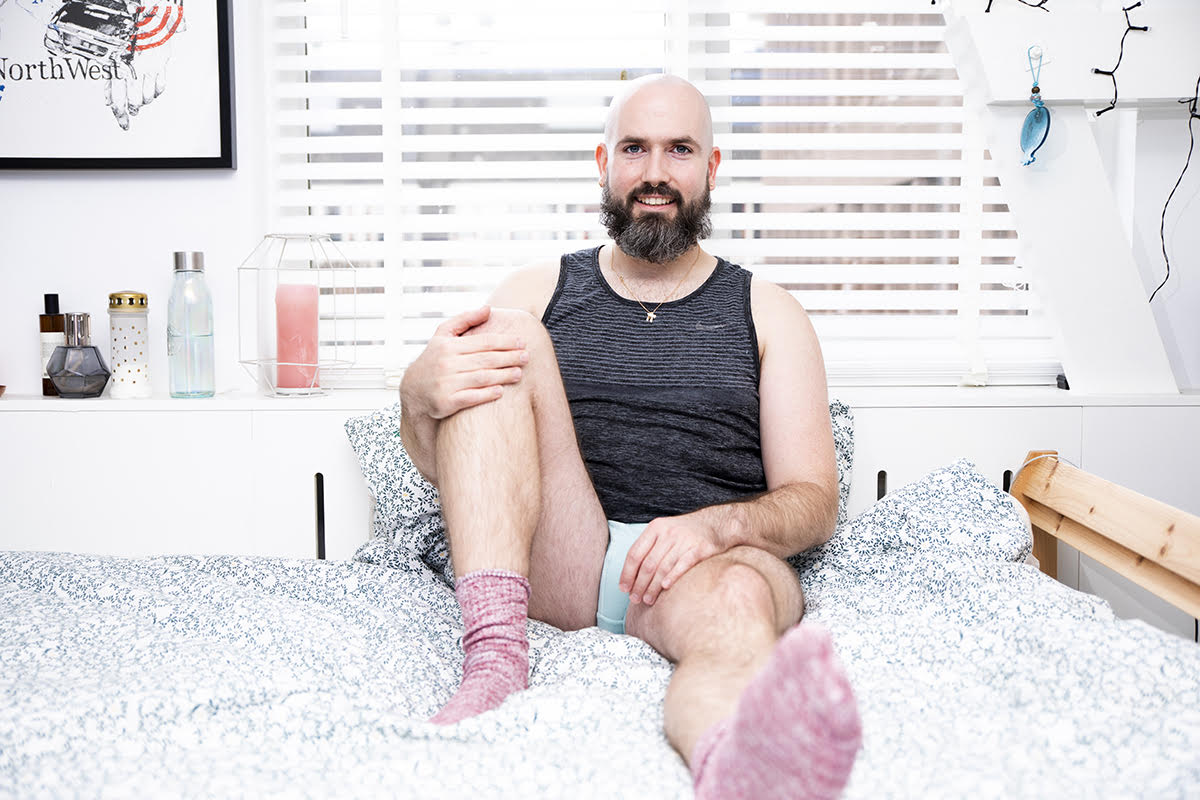‘He did not live far from my hometown, so when we got back from holiday, we decided to meet up. I knew how my parents felt about queer people, but I didn’t hesitate: I wanted to explore my feelings for the simple reason that they were mine.
Alexander and I spent the night together. I told my parents I was at a friend’s party, but when I came home the next morning, they had already found out the truth. My dad told me that as long as I was living in his house there would be no gay stuff going on. He phoned Alexander and threatened to go to the police if ever contacted me again. For the next couple of years, my parents always checked on what I was doing and who I hung out with. Their message was: we love you, but we don’t accept your feelings.
My mother is from Israel, so I looked a little different to my classmates in the little Dutch town I grew up in. I was an exotic and effeminate kid who did not celebrate Christmas, spoke Hebrew, and got good grades. I got bullied terribly, was called a dirty Jew and a fag. Words can hurt – a lot – but neither my parents’ homophobia nor my classmates’ verbal abuse influenced the way I saw myself or how I understood my feelings. I have never cared about what people think of me, because it doesn’t say anything about who I am.

Image: Elvin Boer
When you grow up in a bicultural home, you realise from an early age that there are multiple perspectives and views, because everybody comes from a different place. My classmates felt intimidated by difference, but I befriended the kids with migrant roots and learned from them by listening to their stories. At school, there were many cliques – the posh kids, the nerds, the emos – and I belonged everywhere and nowhere. I never felt the urge to be part of a single group, because that would mean I had to reduce myself to a norm and set of expectations. I will never present myself differently to what I am in order to fit in.
‘I think a lot of gay men want to show the world and themselves they are real men’
When I moved out of my parents’ house and went to medical school, I threw myself into the gay world, which was rather disappointing. Just like in high school, there were cliques with codes of conduct and oppressive body types. I don’t need acceptance or approval, but I hoped that because of our common struggle there would be a stronger sense of inclusion. On an emotional level, I still don’t understand why this is so.
On the one hand, my generation is all about sexual freedom and gender fluidity, but on the other, traditional gender roles seem to be more popular than ever. I think a lot of gay men nowadays want to show the world they are real men, and they grow a beard to help counteract the conflation of homosexuality with effeminacy. But I wonder: can this hypermasculine representational strategy act as a shield against homophobia? Or is it a manifestation of internalised patriarchal values and the homophobia that comes with it?
‘The first step in meaningful contact with others is listening and acknowledging that every person is unique’
With a beard, I feel confident because it makes my face more attractive, not because it is a mark of a particular identity I need to conform to. I think it is fun to experiment with different looks: to take on a certain style, see what it does for me and maybe mix it up with something completely different. I have been punk, femme, butch, and nerdy; my hair has been long, shaven, dyed, and styled in a mohawk. Contradictions and unexpected twists make life interesting.

Image: Elvin Boer
Many people interpret my long beard as an expression of my Jewishness. My beard might look like the traditional beard of orthodox Jews, but strictly speaking it is not – especially not combined with my pierced ears, nose, and nipples. I am a Jew in my own right. For me, my heritage is not about some rigid set of ideas, but about speaking up against injustice and being open to others. After I graduated, I founded Moishe Pod, a Jewish urban retreat for young people of various cultural backgrounds to come together and explore their common denominator.
The first step in meaningful contact with others is listening and acknowledging that every person is unique, that every feeling is legit. I have travelled the world and have friends all over. I feel at home everywhere because I am at home in myself.’
